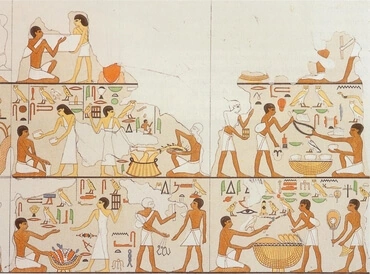1
Därefter sade HERREN till Mose: »Ännu en plåga skall jag låta komma över Farao och över Egypten; sedan skall han släppa eder härifrån; ja, han skall till och med driva eder ut härifrån, när han släpper eder.
2
Så tala nu till folket, och säg att var och en av dem, man såväl som kvinna, skall av sin nästa begära klenoder av silver och guld.»
3
Och HERREN lät folket finna nåd för egyptiernas ögon. Ja, mannen Mose hade stort anseende i Egyptens land, både hos Faraos tjänare och hos folket.
4
Och Mose sade: »Så säger HERREN: Vid midnattstid skall jag gå fram genom Egypten.
5
Och då skall allt förstfött i Egyptens land dö, från den förstfödde hos Farao, som sitter på tronen, ända till den förstfödde hos tjänstekvinnan, som arbetar vid handkvarnen, så ock allt förstfött ibland boskapen.
6
Och ett stort klagorop skall upphävas i hela Egyptens land, sådant att dess like aldrig har varit hört och aldrig mer skall höras.
7
Men icke en hund skall gläfsa mot någon av Israels barn, varken mot människor eller mot boskap. Så skolen I förnimma att HERREN gör en åtskillnad mellan Egypten och Israel.
8
Då skola alla dina tjänare här komma ned till mig och buga sig för mig och säga: 'Drag ut, du själv med allt folket som följer dig.' Och sedan skall jag draga ut.» Därefter gick han bort ifrån Farao i vredesmod.
9
Men HERREN sade till Mose: »Farao skall neka att höra eder, på det att jag må låta många under ske i Egyptens land.»
10
Och Mose och Aron gjorde alla dessa under inför Farao; men HERREN förstockade Faraos hjärta, så att han icke släppte Israels barn ut ur sitt land.







